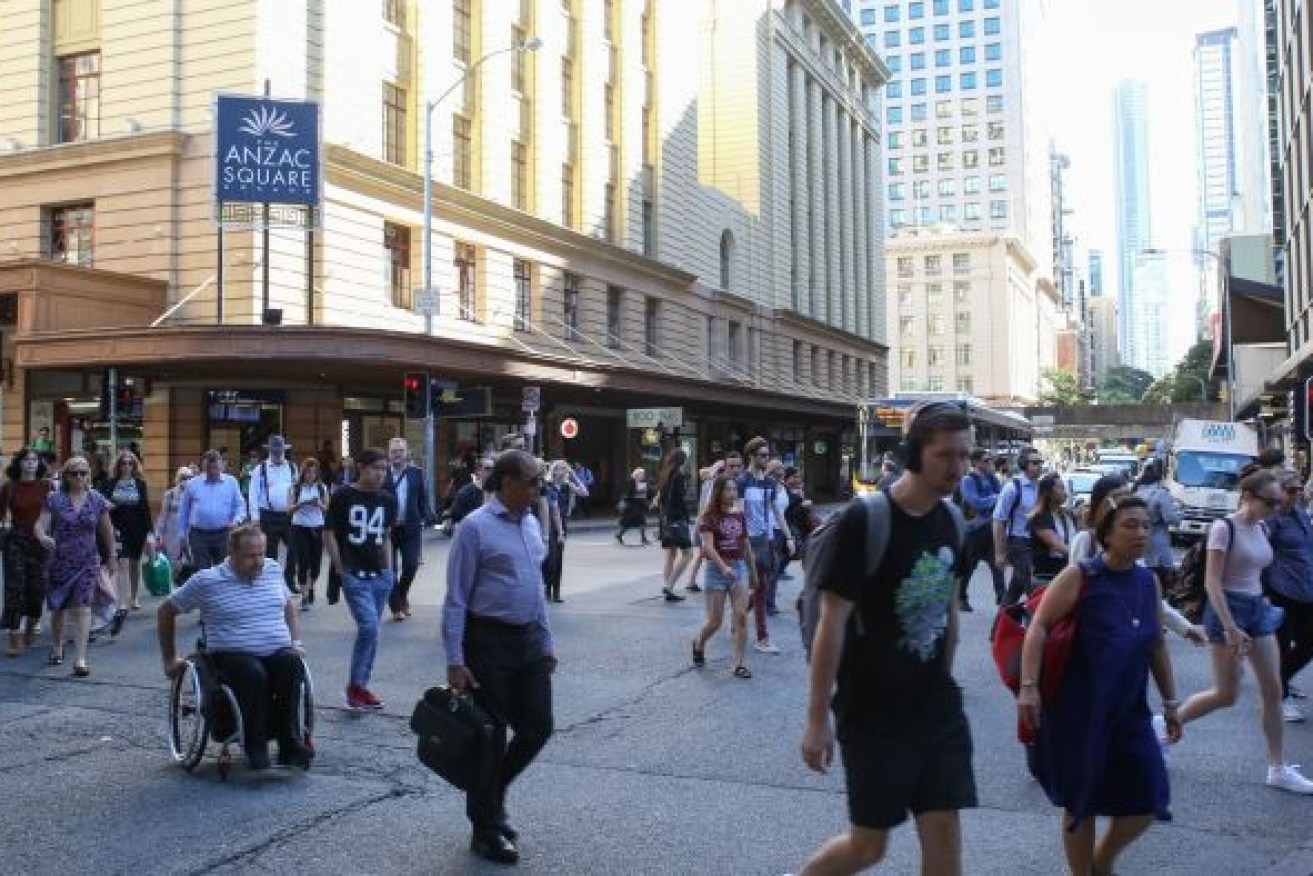Brisbane workers still sitting at home as CBD occupancy flatlines
Brisbane’s CBD office occupancy has flatlined around the 70 per cent level for most of 2021, proving the difficulty in getting people back to work.


Brisbane office occupancy levels in March lifted 7 per cent to 48 per cent. (File image)
While Brisbane’s result for the month of May was better than Sydney (68 per cent) and Melbourne (45 per cent) it was well behind Adelaide (78 per cent) and Perth (77 per cent). Hobart and Darwin are at 93 per cent.
The council said the occupancy level was now relatively consistent outside Sydney and Melbourne.
However, its latest national survey also found that 81 per cent of office building owners and managers were not expecting to see a material increase in occupancy levels within the next three months.
In Brisbane, the Fridays in the City initiative was showing some signs of success.
However, the impact on businesses has been profound. Woolworths announced today that its Metro stores had been hit and it would write down their collective value by $50 million.
Property Council’s Queensland executive director Jen Williams said the campaign was about reminding people why the city is a great place to visit. This Friday will also be the last day of the campaign.
“The Property Council’s most recent office occupancy data confirms that remote working remains the key challenge for Australia’s CBDs,” Williams said.
“Brisbane’s CBD office occupancy is sitting at 71 per cent of where it was pre-pandemic – and it’s been hovering at this level for the last six months.”
But she said the campaign had driven an increase in foot traffic across the CBD since it kicked off on 21 May.
“Our CBDs are our economic powerhouses. The property industry is stepping up with food and beverage deals, retail offerings, gift vouchers and giveaways galore. We want people join us for Fridays in the City and see what they’ve been missing,” she said.
The Property Council national chief executive Ken Morrison said flexibility would continue to be a strong feature in the post-pandemic world, but the current levels of occupancy were not sufficient to support Australia’s broader economic recovery.
“Our CBDs support millions of jobs and generate hundreds of billions of dollars in economic activity. We need them firing on all cylinders.”












